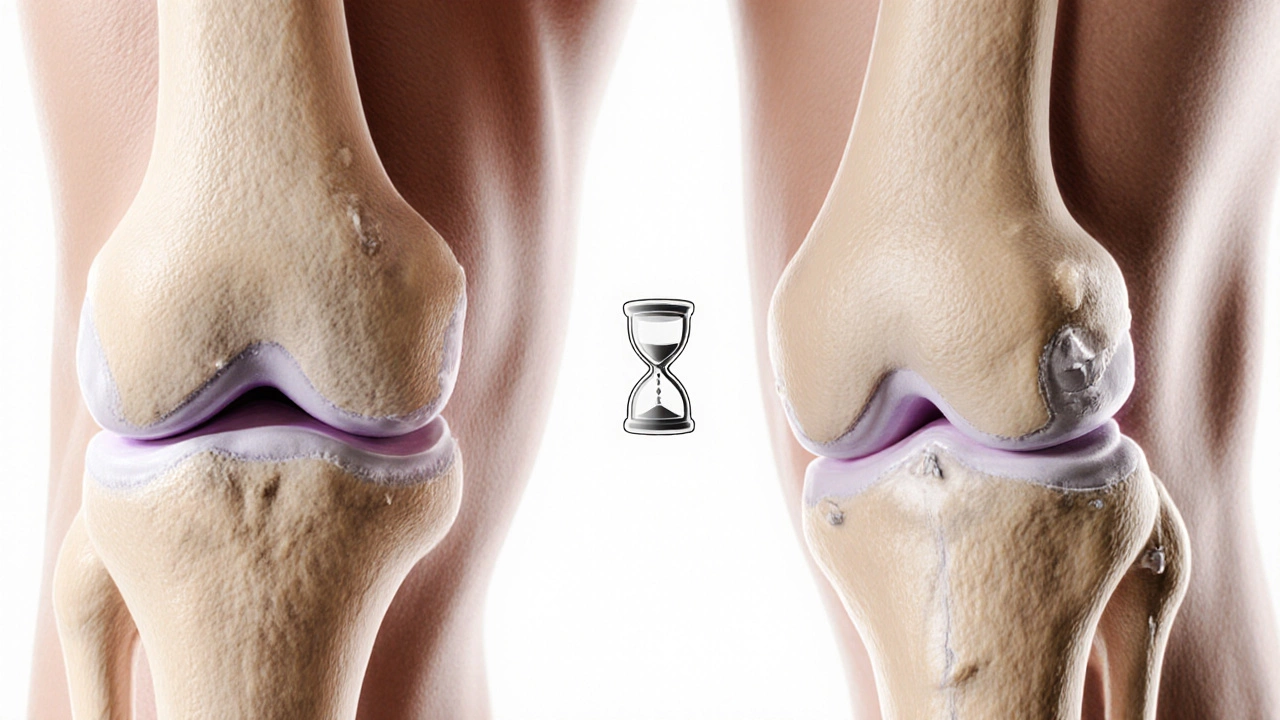Delaying knee replacement raises infection, clot and revision risks, worsens pain and mobility, and adds hidden costs. Learn the medical, functional and financial consequences of waiting too long.
Read MoreUnderstanding wait too long knee surgery and Its Real Impact
When talking about wait too long knee surgery, the situation where a patient’s knee replacement or repair is postponed beyond the optimal window. Also known as delayed knee surgery, it often leads to worsening joint damage, higher pain scores, and longer rehab periods. The longer you wait, the more cartilage wears down, making the eventual operation tougher and the road to recovery steeper.
How Delays Influence Recovery and Pain Control
One major side effect of postponing surgery is a spike in knee surgery recovery, the process of regaining strength, range of motion, and functional ability after the procedure. When the joint is already more damaged, surgeons may need to remove extra bone or perform more complex techniques, which directly lengthens the rehab timeline. In addition, delayed surgery often means higher postoperative pain management, strategies like medication, nerve blocks, and physical therapy aimed at controlling pain after the operation challenges. Patients report higher opioid use and slower pain relief because the body’s inflammatory response is already heightened by chronic degeneration.
Older adults feel the impact even more acutely. For someone in their 70s, a delayed elderly knee replacement, knee joint replacement performed on senior patients, often comes with stricter health checks and a tighter window for safe anesthesia can mean missed opportunities for a smoother surgery. Age‑related factors like reduced muscle mass and slower tissue healing combine with the extra wear caused by waiting, leading to longer hospital stays and a higher chance of complications. Getting the orthopedic consult early—another key factor—helps doctors map out the best timing, evaluate comorbidities, and set realistic expectations before the delay turns into a bigger problem.
In short, waiting too long for knee surgery triggers a chain reaction: worsening joint damage → tougher surgery → intensified postoperative pain → extended rehab, especially for seniors. By understanding these links, you can ask the right questions, plan ahead, and avoid the pitfalls that turn a routine knee replacement into a prolonged struggle. Below you’ll find a curated set of articles that dive deeper into each of these aspects, offering practical tips, expert advice, and real‑world success stories to help you make an informed decision about when to act.





